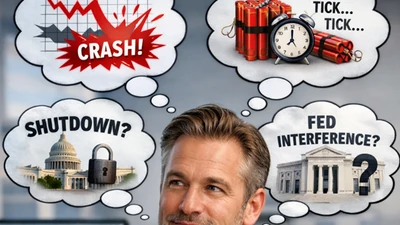As we navigate Q2 2025, tariffs have reemerged as a hot-button issue, particularly with the Trump administration’s renewed push for trade policies like the proposed 25% tariffs on imports from Canada and Mexico. For conservative American investors, tariffs evoke a mix of principled support and pragmatic concern, rooted in values like economic nationalism, self-reliance, and skepticism of globalism. Below, I outline the key points on tariffs from a conservative perspective—focusing on their implications for the economy, markets, and investment strategy—written as a financial advisor addressing a cautious, values-driven audience.
1. Protecting American Jobs and Industry
Core Belief: Conservatives often view tariffs as a tool to shield U.S. workers and manufacturers from unfair foreign competition, particularly from countries with lower labor costs or lax regulations (e.g., China). The goal is to revive domestic industries like steel, automotive, and tech manufacturing, which align with a “Made in America” ethos.
2025 Context: With unemployment ticking up to 4.2% (per recent Fed data) and manufacturing PMI softening, tariffs on Canadian and Mexican goods aim to bolster U.S. supply chains disrupted by decades of offshoring. X posts from conservative voices cheer this as “bringing jobs back home.”
Investor Takeaway: Firms like Nucor (steel) or General Motors could see a lift if tariffs reduce import reliance, though higher input costs might squeeze margins short-term.
2. Strengthening National Security
Core Belief: Economic independence is a pillar of national sovereignty—a longstanding conservative priority. Tariffs reduce dependence on foreign adversaries (e.g., China for rare earths or semiconductors), ensuring the U.S. isn’t vulnerable in a crisis.
2025 Context: The tech sector, a focus of this discussion, feels this acutely. Quantum tech and chip production rely on global supply chains; tariffs could force reshoring, benefiting companies like Intel or Texas Instruments. Defense contractors like Lockheed Martin also gain from a fortified domestic industrial base.
Investor Takeaway: Conservative portfolios might tilt toward U.S.-centric firms with minimal foreign exposure, though supply chain shocks could spark volatility.
3. Countering Unfair Trade Practices
Core Belief: Free trade sounds noble, but conservatives argue it’s a myth when nations like China subsidize industries, dump cheap goods, or steal intellectual property. Tariffs level the playing field, forcing fair competition.
2025 Context: The proposed North American tariffs target Canada and Mexico partly as leverage in trade talks, but also reflect frustration with China’s influence via backdoor channels. Tech conservatives on X lament how “cheap imports kill innovation”—a nod to protecting quantum or AI startups.
Investor Takeaway: Domestic tech giants (e.g., IBM, Microsoft) with in-house R&D may weather this better than import-heavy firms like Apple, though higher costs could dent consumer tech stocks.
4. Boosting Government Revenue
Core Belief: Tariffs historically funded the U.S. government before income taxes—a fact conservatives often cite to argue they’re a simpler, less intrusive revenue source. Reducing reliance on debt or tax hikes appeals to fiscal hawks.
2025 Context: With the federal deficit at $2 trillion (CBO estimates), tariff revenue could offset spending without raising taxes—a win for small-government advocates. In 2018-2019, Trump’s tariffs raised $70 billion; scaling that up could fund infrastructure or tech R&D.
Investor Takeaway: Bond yields might stabilize if tariffs ease deficit pressure, benefiting conservative staples like Treasuries or dividend stocks.
5. Economic Risks and Inflation Concerns
Pragmatic Concern: While conservatives back tariffs in theory, many worry about unintended consequences. Higher import costs could fuel inflation—already stubborn at 3%—hitting consumers and businesses. Retaliation from Canada and Mexico (key U.S. export markets) could also sting.
2025 Context: Tech supply chains, reliant on cross-border components, face disruption. Posts on X warn of “iPhone price hikes” or “chip shortages,” echoing 2018’s tariff fallout. The Fed’s cautious rate stance adds pressure.
Investor Takeaway: Defensive tech (e.g., enterprise software like Microsoft) or domestic producers (e.g., Intel) may fare better than globalized names (e.g., Nvidia, with Taiwan exposure).
6. A Return to Self-Reliance
Core Belief: Tariffs embody a broader conservative vision of reducing global interdependence, favoring a robust, self-sufficient America over multinational handouts. This resonates with heartland voters and investors wary of ESG-driven globalism.
2025 Context: Quantum tech, a conservative-friendly frontier, could thrive if tariffs spur domestic investment in R&D and manufacturing. Companies like Honeywell or IBM, already U.S.-focused, align with this shift.
Investor Takeaway: Look for firms with strong American footprints—less vulnerable to trade wars—and a stake in strategic tech like quantum or semiconductors.
Balancing Principle and Prudence
From a conservative viewpoint, tariffs are a double-edged sword: a principled stand for sovereignty and fairness, yet a practical gamble in a connected world. For investors:
Winners: Domestic manufacturers, defense tech, and firms with minimal import reliance (e.g., IBM, Lockheed, Nucor).
Losers: Consumer tech with global supply chains (e.g., Apple, Tesla) or exporters facing retaliation.
Strategy: Diversify into tariff-resilient sectors—think utilities or healthcare—while eyeing quantum and chip plays for long-term upside. Monitor inflation and Fed moves closely; cash or bonds could hedge short-term turbulence.
The Conservative Lens
Tariffs, to conservatives, aren’t just economics—they’re identity. They signal a rejection of elite globalism for a muscular, independent America. In 2025, with quantum tech and national security in play, the stakes feel higher. Cautious investors should back U.S.-centric firms with strong fundamentals, balancing patriotic optimism with vigilance for cost shocks. As always, consult your advisor to align this with your values and risk tolerance—because in trade policy, as in markets, conviction must meet calculation.










